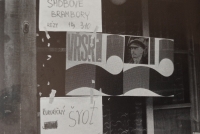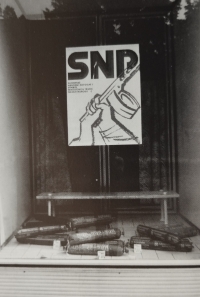People reacted to the photos, but not to what was actually happening
Stáhnout obrázek
Photographer Bohuslav „Bob“ Pacholík was born on July 20, 1947 in Prostějov. In his childhood, he attended Pionýr, and the Zápisník třinácti bobříků (Notebook of Thirteen Beavers), given to him by his older brother, seemed to be from another world. He comes from a family of a bank clerk and a domestic seamstress, his father was a member of the Communist Party before he disagreed with the so-called „fraternal aid“ in the vetting process after the invasion of the Warsaw Pact troops. The witness went on to apprentice as a millwright, where he was held up as an example for having chosen a working-class profession as the son of a clerk. He then went on to study at the Mechanical Engineering School until he finally took up a job at the Prostějov Construction Machinery. At that time, he started to take more photographs, which led to a job at the Prostějov Municipal Cultural Centre. He photographed cultural events, such as the Wolfkr‘s Prostějov, and worked as a methodologist for art classes. At the same time, he also photographed a „socially humorous critical documentary“ of the harsh normalisation, and exhibited the photos in a showcase. In 1977 he married Vera Palacka, nine years later they divorced and have two children together. He was one of the first members of the Civic Forum in Prostějov, after the revolution he was three times in the city council. He took photographs for the newspapers Prostějovský týden and Hanácké noviny, and organised many exhibitions. In 2024 he lived in Prostějov.


